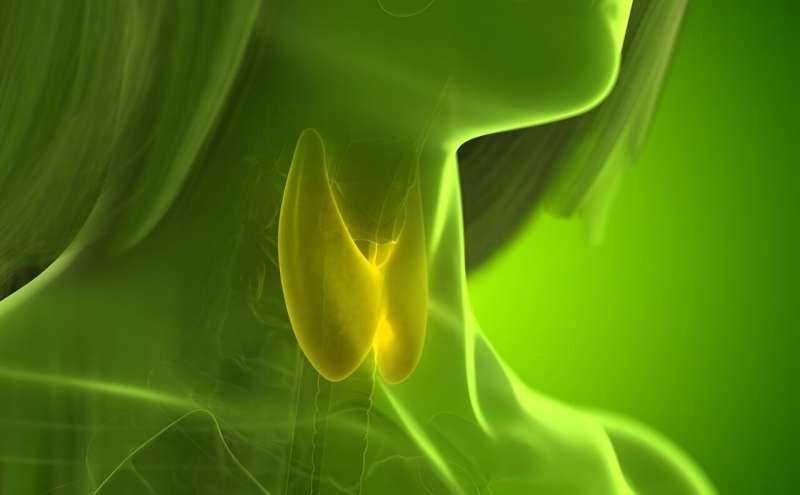
For patients with Hashimoto disease and persistent symptoms, total thyroidectomy is beneficial, offering long-lasting effects, according to a research letter published online Nov. 28 in the Annals of Internal Medicine.
Geir Hoff, M.D., Ph.D., from the University of Oslo in Norway, and colleagues examined long-term follow-up of a randomized trial of thyroidectomy plus medical management versus medical management alone for patients with Hashimoto disease, with persistent symptoms despite adequate thyroid hormone substitution.
At inclusion, control patients were given the option of having surgery at 18 months after enrollment, depending on the trial results. Participants were followed up at five years in the intervention group and until date of surgery in the control group.
At baseline, 72 and 74 patients were included in the surgery and control groups, respectively. The researchers found that the positive treatment effect on the general health score, seen after 18 months, was maintained through three-year follow-up. The improved score remained at the same level in the intervention group during five-year follow-up.
For the other Short Form-36 Health Survey domains and for total fatigue and chronic fatigue, results were similar. Short-term or longer-lasting complications occurred in 23 patients, including six with recurrent laryngeal nerve paralysis and 12 with hypoparathyroidism.
“Total thyroidectomy was shown to have a beneficial and long-lasting effect up to five years for patients with Hashimoto disease and persistent symptoms in an unblinded randomized clinical trial but with a substantially higher risk for complications than postulated at the beginning of the study,” the authors write.
More information:
Geir Hoff et al, Thyroidectomy for Euthyroid Patients With Hashimoto Disease and Persisting Symptoms, Annals of Internal Medicine (2023). DOI: 10.7326/M23-1593
Journal information:
Annals of Internal Medicine
Source: Read Full Article
